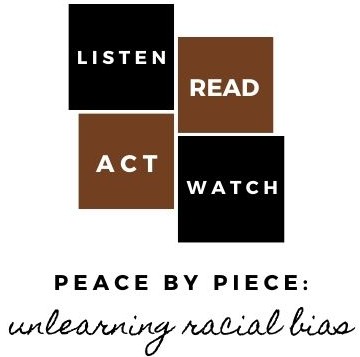This post is part of a year-long series. If my work is helpful for you, consider a contribution through Venmo to support this crucial work of unlearning racial bias.
I loved my second grade teacher Mrs. Cyrus. She was so kind and patient. And for a child who was shy, her kindness provided a constant, soothing balm to help me feel secure in her class.
Mrs. Cyrus’s classroom had posters on the wall of people who were famous and who had contributed to history in some way. It was in her classroom that I first learned about Shirley Chisholm.
In addition to being the first woman and the first African-American to seek a major party presidential nomination, Chisholm was an educator and lifelong activist. She is often quoted as having said, “If they won’t give you a seat at the table, bring a folding chair.”
In recent years, amid unrest and uprisings to draw attention to the plight of Black Americans because of systemically racist policies, many folks have built on Chisholm’s sentiment by amending it and stating, “If they won’t give you a seat at the table, build your own.”
Take, for instance, Naomi Osaka’s recent decision to pull out of a prestigious tennis tournament. Initially, Osaka chose not to participate in the compulsory press conference/Q&A following a match. She understood the fine she’d incur by not engaging the press, and she voluntarily chose to pay the fine rather than submit herself to the microscope of press questions, in order to protect her own mental health. The organization that runs the tournament threatened Osaka with no longer being able to participate in the event, rather than respecting her decision to protect her health.
In other words, Osaka got up and left the table.
Consider, too, Nikole Hannah-Jones’s public departure from UNC Chapel Hill and subsequent attachment to Howard. After a months-long struggle to be awarded tenure in a tenured position Jones had already occupied, UNC students pushed the school’s board to meet and discuss Jones’s position, and thereby hold the board accountable for their shoddy handling of Jones’s job. When Jones subsequently announced her departure for the historically Black Howard University, she made an incredibly impactful statement about Black scholarship and the value of building on the legacy of excellence that institution has established in and for the Black community.
Another way of saying this is that Jones left an ostensibly integrated table for a historically Black one.
In 2016, Alton Sterling and Philando Castile were killed by police officers. A large-scale #blacklivesmatter protest in Dallas that should have been peaceful instead resulted in a lone gunman killing five police officers. Into this atmosphere of unrest arrived Solange Knowles’ album “A Seat at the Table.”
In the album, Knowles speaks to this tension: Do we continue to struggle for space at a proverbial table that was never intended to treat Black people as equals, with meaningful gifts to offer in any given context, or do we build our own spaces? Do we try and try again to force our gatekeepers to make room for us at this table of the idyllic whitewashed American dream for prosperity and peace and omnipresent hope; or do we walk away to save our own peace and build spaces for us and by us?
As you listen to Knowles’ album and read about Nikole Hannah-Jones and Naomi Osaka, I hope you will consider the weight many African-Americans feel when considering our personal and professional decisions. Almost nothing we do that is of any consequence to people other than ourselves, is without a ripple effect that is invisible to our eyes but nonetheless deeply resonant within them.

- Who has written the history you have learned?
- Have opposing viewpoints been represented, or have accounts been one-sided?
- When Black public figures make professional decisions you don’t agree with, does your criticism issue from a place that acknowledges their humanity, or do you instead see them only as commodities or entertainers whose decision has resulted in an inconvenience for you?
- When in your life have you found yourself seated at a table of sorts, only to look around and see that you are the only person at the table who represents a specific demographic you embody? How did you feel in that circumstance? How did you conduct yourself once you realized your novelty?
I hope you’ll sit with these questions and the tension they awaken within you. Allow yourself to breathe through the tension and sit with it until you can begin to untangle some of the biases you perhaps didn’t know you held. We will keep working together to construct lasting peace for ourselves, our communities, and our families – one piece at a time.



